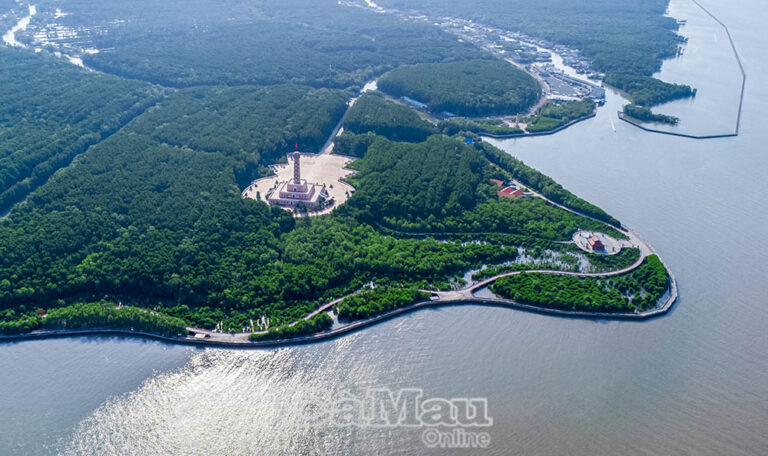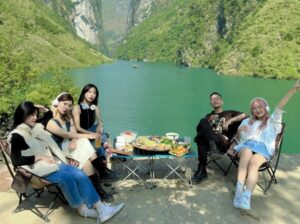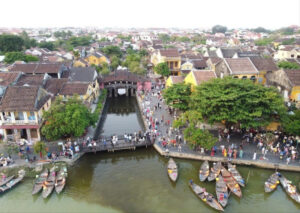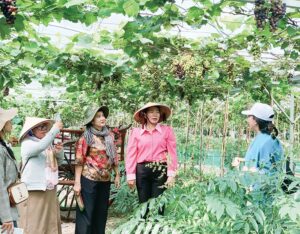Among the traditional handicrafts, the non la (conical hat) has become a cultural specialty for tourists when visiting Hue. It is necessary to have a suitable direction for restoring and further promoting the craft of making conical hats through community-based tourism activities.
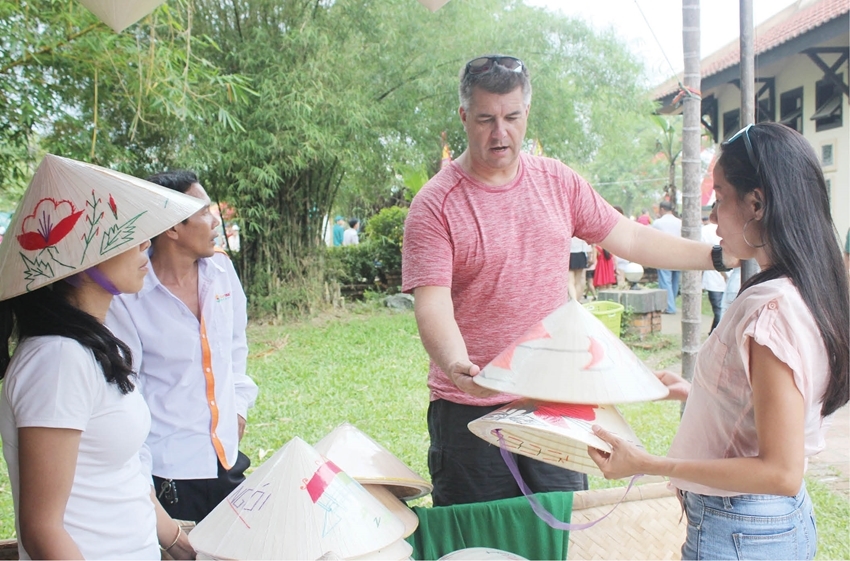
The hat-making craft in Van The village is currently one of the community-based tourism products of Thuy Thanh commune (Huong Thuy district).
The risk of decline
One of the challenges facing the profession of making Hue conical hats is the risk of decline due to low and unstable income, causing many people to abandon the trade. The value of labor is low, averaging from 30,000 to 50,000 VND per day.
According to a survey conducted in My Lam village (Phu Vang district), there used to be over 300 households making conical hats in the area, but now there are fewer than 20. Phu Ho conical hat village (Phu Vang district) is also facing a similar situation with only around 15 households left, compared to the past when there were up to 800 households making conical hats.
These figures demonstrate that the local market for Hue conical hats has not yet stabilized, making it difficult to sell even when produced in large quantities. Even at Dong Ba market, the largest wholesale market for Hue conical hats, only 10-40% of the hats sold are made in Hue, while the majority imported from Quang Binh and Binh Dinh provinces.
The immediate difficulty of making Hue conical hats makes people think of the tourism industry as a means to solve the output and increase the economic value of the product; thereby, creating additional livelihood activities to stimulate and maintain the vitality of traditional craft villages.
In reality, tourism has already begun to appear in Hue's conical hat making villages. However, in tourism programs offered by travel agencies, the inclusion of visits and experiences to traditional Hue conical hat villages is very limited.
Hue conical hats have so far been confined to being a space of souvenir gifts rather than that ofcultural tourism industry. Obviously, the transformation from a commercial souvenir space to a cultural tourism space is a difficult and urgent undertaking.
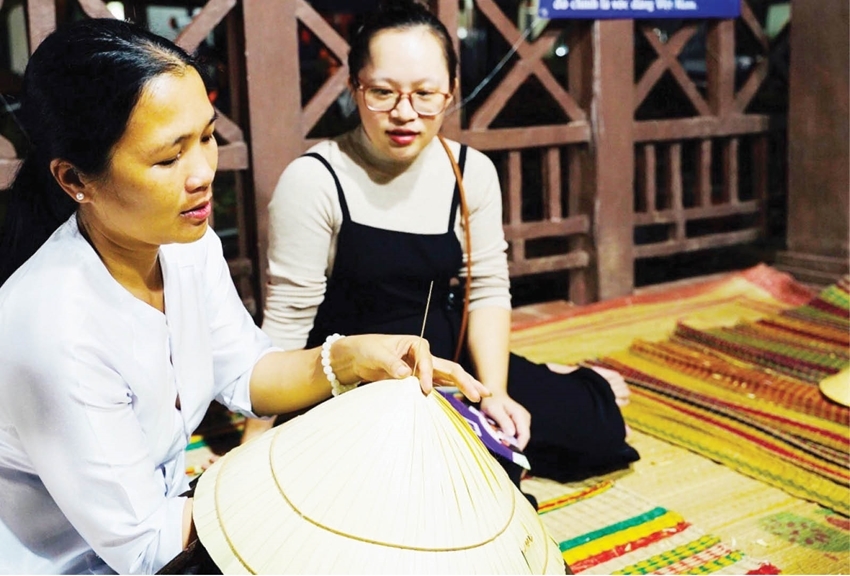
Dedicated to the craft
Connecting the conical hat with the term “community-based tourism”
At the workshop on preserving and developing cultural values of Hue's conical hat-making craft in the process of Vietnam's international economic integration, many opinions suggested that in order to build a community-based tourism product associated with the Hue conical hat-making profession with a value chain orientation, it is necessary to determine the roles and involvement of relevant parties.
The “chain bearers” are often carried out by travel agencies (enterprises) that are sensitive to market and utilize them to exploit the needs of tourists. Tourists, on the other hand, are the beneficiaries and co-creators who help enhance the value chain of local tourism.
The “self-resources” of people were also mentioned as a strong attraction for community-basedtourism growth, where there is no need to equip expensive items or invest in building modern and sturdy spaces.
Self-resources are just simple “homestyle”, simple household items, and environment-friendly living space associated with traditional craft practices. Based on these resources, arranging and shaping them to be tidy and neat are enough to convey the dynamic values of the craft village. These factors, combined with the eco-friendliness of conical hat-making craft, provide a premise to guide the emotions for visitors in their responsible consumption habits.
According to Dr. Ta Duy Linh and Dr. Duong Duc Minh (from the Institute of Economic and Tourism Development Research in Ho Chi Minh City), developing community-based tourism associated with the Hue conical hat-making profession with a value chain orientation will break down the fragmented nature, lack of systemization, and lack of cohesion among stakeholders involved in the supply chain. Clearly, the value chain strengthens the structure of the tourism product and reduces the risks associated with tourism livelihood practices.
Tourists will feel peace of mind when owning products made from their experience participating in product manufacturing activities. The tourists' participation in the experience will increase the sustainable effect of the supply-demand relationships in local tourism.
Mr. Nguyen Van Phuc, Director of the Department of Tourism, said that in order to meet the increasing demand of the market, it is necessary to build a team of skilled workers and artisans with knowledge of technology. Emphasis should be placed on training and fostering the staff in travel business activities, as well as tour guides who have a good understanding of the craft villages, artisans, and craftsmen, to introduce and promote the image of the craft and craft village to tourists.
At the same time, it is necessary to combine this with entrepreneurship training for the production households to have many skills and come up with ideas for new product lines that suit the tastes of the export and domestic markets.
Story and photos: Han Dang


